|
Books Should Be Free Loyal Books Free Public Domain Audiobooks & eBook Downloads |
|
|
Books Should Be Free Loyal Books Free Public Domain Audiobooks & eBook Downloads |
|
History Books |
|---|
|
Book type:
Sort by:
View by:
|
By: Harris Dickson (1868-1946) | |
|---|---|
 The Black Wolf's Breed A Story of France in the Old World and the New, happening in the Reign of Louis XIV
The Black Wolf's Breed A Story of France in the Old World and the New, happening in the Reign of Louis XIV
| |
By: Harris Newmark (1834-1916) | |
|---|---|
 Sixty Years in Southern California 1853-1913
Sixty Years in Southern California 1853-1913
Harris Newmark was personally acquainted with every person and family involved in the founding of the city of Los Angeles, California. He gathers into this well-written book his reminiscences of the period from 1853 to 1913, as Los Angeles developed from a tiny village surrounded by great ranchos into a modern city. This book is a fascinating treasure trove of information for anyone who lives in Los Angeles. ***NOTE: It should be noted that there is language within this book that was commonplace during the time this book was written that is often considered offensive today.*** | |
By: Harrison Ainsworth | |
|---|---|
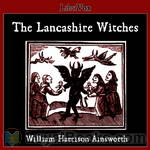 The Lancashire Witches
The Lancashire Witches
The Lancashire Witches is a highly fictionalised account of the activities of the notorious witches Demdike, Chattox and Alice Nutter who, together with others terrorised the district of Lancashire around Pendle Hill and the Forest of Bowland during the early seventeenth century. The witches named in the book were real enough, if not as witches then as people. Ainsworth, in his story brings in the dissolution of Whalley Abbey and the historic families of Assheton, Braddyll and Nowell and takes us through to the final trial and execution at Lancaster Castle in 1612. (Summary by Andy Minter) | |
By: Harry Alverson Franck (1881-1962) | |
|---|---|
 Tramping Through Mexico, Guatemala and Honduras — Being the Random Notes of an Incurable Vagabond
Tramping Through Mexico, Guatemala and Honduras — Being the Random Notes of an Incurable Vagabond
| |
By: Harry C. Yarrow (1840-1929) | |
|---|---|
 A Further Contribution to the Study of the Mortuary Customs of the North American Indians
A Further Contribution to the Study of the Mortuary Customs of the North American Indians
| |
 An Introduction to the mortuary customs of the North American Indians
An Introduction to the mortuary customs of the North American Indians
| |
By: Harry Castlemon (1842-1915) | |
|---|---|
 True To His Colors
True To His Colors
| |
 Marcy The Blockade Runner
Marcy The Blockade Runner
| |
 Rodney The Partisan
Rodney The Partisan
| |
By: Harry Collingwood (1851-1922) | |
|---|---|
 The Cruise of the Thetis A Tale of the Cuban Insurrection
The Cruise of the Thetis A Tale of the Cuban Insurrection
| |
 The Log of a Privateersman
The Log of a Privateersman
| |
 Under the Meteor Flag Log of a Midshipman during the French Revolutionary War
Under the Meteor Flag Log of a Midshipman during the French Revolutionary War
| |
By: Harry De Windt (1856-1933) | |
|---|---|
 A Ride to India across Persia and Baluchistán
A Ride to India across Persia and Baluchistán
| |
 On the Equator
On the Equator
| |
By: Harry F. Giles | |
|---|---|
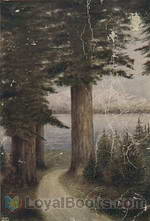 The Beauties of the State of Washington A Book for Tourists
The Beauties of the State of Washington A Book for Tourists
| |
By: Harry Lauder (1870-1950) | |
|---|---|
 A Minstrel in France
A Minstrel in France
| |
By: Harry Moore | |
|---|---|
 The Liberty Boys Running the Blockade or, Getting Out of New York
The Liberty Boys Running the Blockade or, Getting Out of New York
| |
By: Harry Perry Robinson (1859-1930) | |
|---|---|
 The Twentieth Century American Being a Comparative Study of the Peoples of the Two Great Anglo-Saxon Nations
The Twentieth Century American Being a Comparative Study of the Peoples of the Two Great Anglo-Saxon Nations
| |
By: Harry Thurston Peck (1856-1914) | |
|---|---|
 Twenty Years of the Republic 1885-1905
Twenty Years of the Republic 1885-1905
Excerpt: At the time when Mr. Cleveland was inaugurated there had been no Democratic President for a full quarter of a century. A whole generation had been born and had grown to manhood and to womanhood without ever having lived under any but Republican rule. This long continuance in power of a single party had led many citizens to identify the interest of that party with the interests of the nation. The democrats had been so invariably beaten at the polls as to make Republicans believe that the defeated party had no decent reason for existence, and that is was composed only of wilful obstructionists or of persons destitute of patriotism... | |
By: Harvey Jerrold O'Higgins (1876-1929) | |
|---|---|
 Under the Prophet in Utah; the National Menace of a Political Priestcraft
Under the Prophet in Utah; the National Menace of a Political Priestcraft
| |
By: Hattie Greene Lockett (1880-1962) | |
|---|---|
 The Unwritten Literature of the Hopi
The Unwritten Literature of the Hopi
| |
By: Hawaii. Dept. of Foreign Affairs | |
|---|---|
 The Hawaiian Islands Their Resources, Agricultural, Commercial and Financial
The Hawaiian Islands Their Resources, Agricultural, Commercial and Financial
| |
By: Hector Malot (1830-1907) | |
|---|---|
 Nobody's Boy Sans Famille
Nobody's Boy Sans Famille
| |
 Nobody's Girl (En Famille)
Nobody's Girl (En Famille)
| |
By: Helen C. Black | |
|---|---|
 Mrs. Hungerford Notable Women Authors of the Day
Mrs. Hungerford Notable Women Authors of the Day
| |
By: Helen Cody Wetmore | |
|---|---|
 Last of the Great Scouts : the life story of Col. William F. Cody, "Buffalo Bill" as told by his sister
Last of the Great Scouts : the life story of Col. William F. Cody, "Buffalo Bill" as told by his sister
| |
By: Helen Elliott Bandini | |
|---|---|
 History of California
History of California
| |
By: Helen Fraser | |
|---|---|
 Women and War Work
Women and War Work
| |
By: Helen Hayes Gleason | |
|---|---|
 Golden Lads
Golden Lads
| |
By: Helen Nicolay (1866-1954) | |
|---|---|
 Boys' Life of Abraham Lincoln
Boys' Life of Abraham Lincoln
The Boys’ Life of Abraham Lincoln is a biography with many anecdotes that takes one deeper into the thoughts, personality, and beliefs of the man that was Lincoln. While the title indicates the book is about Lincoln’s life as a boy, the book is a full, if somewhat shortened biography. It is very well written and was a joy to record. One might ask, "Who was Helen Nicolay?" Her father, John George Nicolay, was Abraham Lincoln's private secretary and doubtless much of the material comes from his complete biography of Abraham Lincoln. ( | |
By: Helen S. Wright | |
|---|---|
 Great White North
Great White North
Sketches of those who braved the 'Great White North' in exploration and adventure. - Summary by KevinS | |
By: Helen W. Pierson | |
|---|---|
 Lives of the Presidents of the United States in Words of One Syllable
Lives of the Presidents of the United States in Words of One Syllable
This book consists of simple biographies of the first 23 Presidents of the United States written chiefly in words of one syllable. Books such as this one were popular around the turn of the 20th century as a way to help children learn to read. A book like this could also be useful for ESL learners as well. - Summary by Mark Dykshoorn | |
 History of England In Words of One Syllable
History of England In Words of One Syllable
A simple history of England written principally with words of one syllable. Books of these kind, I understand, are helpful for both beginning and remedial reading students. - Summary by KevinS | |
By: Helena P. Blavatsky (1831-1891) | |
|---|---|
 From the Caves and Jungles of Hindostan
From the Caves and Jungles of Hindostan
| |
By: Hendrik van Loon | |
|---|---|
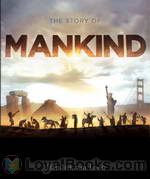 The Story of Mankind
The Story of Mankind
A book that won the Newberry Prize in 1921 for an Outstanding Contribution in Children's Literature, The Story of Mankind, by Hendrik van Loon is indeed a classic that has been enjoyed by generations of children and adults. The book is an engagingly written work, dedicated to the author Hendrik van Loon's two young son's Hansje and Willem. It was created to convey the history of the human race to young people in a way that was interesting, memorable and would spur them onto further research and reading into the subject... | |
By: Henri Bergson (1859-1941) | |
|---|---|
 The Meaning of the War Life & Matter in Conflict
The Meaning of the War Life & Matter in Conflict
| |
By: Henri de Crignelle | |
|---|---|
 Le Morvan, [A District of France,] Its Wild Sports, Vineyards and Forests; with Legends, Antiquities, Rural and Local Sketches
Le Morvan, [A District of France,] Its Wild Sports, Vineyards and Forests; with Legends, Antiquities, Rural and Local Sketches
| |
By: Henrietta Elizabeth Marshall (1867-1941) | |
|---|---|
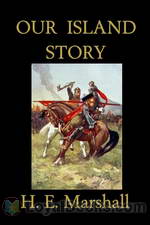 Our Island Story
Our Island Story
Tailored specially to make history more palatable and interesting to children, Our Island Story, by Henrietta Elizabeth Marshall, is a charmingly illustrated volume that promises hours of delight for parents as well as children. Beginning with the myths and legends about Albion, the author ensures that she captivates the child's imagination from the very first page. Unlike today's dry and non-committal history tomes that are prescribed in schools, Our Island Story is full of lyrical prose, literary allusions, heroic and tragic characters, the hunger for power and the glory of empire... | |
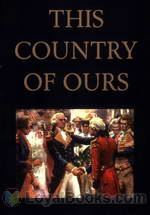 This Country of Ours
This Country of Ours
History made interesting for young readers—This Country of Ours by Henrietta Elizabeth Marshall provides a simple and easy to comprehend way of looking at the history of the United States. Arranged chronologically in seven long chapters, it presents events in a story form, making them memorable and very different from other formats. One of the challenges that writers of history face is about fleshing out the characters and making the bland repetition of dates and dynasties seem relevant to modern day readers... | |
By: Henriette Lucie Dillon, marquise de La Tour du Pin Gouvernet (1770-1853) | |
|---|---|
 Recollections of the Revolution and the Empire
Recollections of the Revolution and the Empire
An aristocratic Frenchwoman's personal record of the dazzling extravagance of the Ancien Régime, of the court of Marie Antoinette, of the Revolution, of her life in exile and of the court of Napoleon Bonaparte. This famous historically valuable memoir, written for her son, ends with Napoleon's return from Elba in 1815. | |
By: Henriette McDougall (1817-1886) | |
|---|---|
 Sketches of Our Life at Sarawak
Sketches of Our Life at Sarawak
| |
By: Henry A. Beers | |
|---|---|
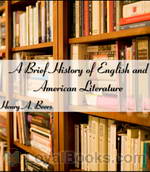 A Brief History of English and American Literature
A Brief History of English and American Literature
Henry Augustin Beers (1847-?), native of Buffalo, NY and professor of English at Yale, with the help of John Fletcher Hurst (1834-1903), Methodist bishop and first Chancellor of American University, has written a sweeping thousand 900 year history of English literature, up to the end of the 19th century. Although at times biased and sometimes misguided (as when he dismisses Mark Twain as a humorist noteworthy in his time but not for the ages), his research is sound and his criticism is interesting and quite often very balanced... | |
By: Henry Adams (1838-1918) | |
|---|---|
 The Education of Henry Adams
The Education of Henry Adams
| |
 Mont-Saint-Michel and Chartres
Mont-Saint-Michel and Chartres
| |
By: Henry Baerlein (1875-1960) | |
|---|---|
 The Birth of Yugoslavia, Volume 1
The Birth of Yugoslavia, Volume 1
| |
By: Henry Bascom Smith (-1916) | |
|---|---|
 Between the Lines Secret Service Stories Told Fifty Years After
Between the Lines Secret Service Stories Told Fifty Years After
| |
By: Henry Benjamin Wheatley (1838-1917) | |
|---|---|
 Literary Blunders
Literary Blunders
| |
By: Henry Beston (1888-1968) | |
|---|---|
 A Volunteer Poilu
A Volunteer Poilu
| |
 Full Speed Ahead: Tales From The Log Of A Correspondent
Full Speed Ahead: Tales From The Log Of A Correspondent
“These tales are memories of several months spent as a special correspondent attached to the forces of the American Navy on foreign service…. [I have] been content to chronicle the interesting incidents of the daily life as well as the achievements and heroisms of the friends who keep the highways of the sea…. I would not end without a word of thanks to the enlisted men for their unfailing good will and ever courteous behaviour.” Henry Beston was an American author. In 1918, Beston became a press representative for the U... | |
By: Henry Bibb (1815-1854) | |
|---|---|
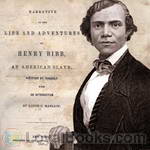 Narrative of the Life and Adventures of Henry Bibb, an American Slave
Narrative of the Life and Adventures of Henry Bibb, an American Slave
Henry Walton Bibb was born a slave. His father was white although his identity was not positively known. Bibb was separated from his mother at a very young age and hired out to other slave owners for most of his childhood. Always yearning for his freedom, he made his first escape from slavery in 1842. He was recaptured and escaped, recaptured and escaped over and over; but he never gave up on his desire to be a man in control of his own destiny. | |
By: Henry Blackburn (1830-1897) | |
|---|---|
 Normandy Picturesque
Normandy Picturesque
| |
By: Henry Blake Fuller (1857-1929) | |
|---|---|
 Cliff-Dwellers
Cliff-Dwellers
Between the former site of old Fort Dearborn and the present site of our newest Board of Trade there lies a restricted yet tumultuous territory through which, during the course of the last fifty years, the rushing streams of commerce have worn many a deep and rugged chasm. These great canons—conduits, in fact, for the leaping volume of an ever-increasing prosperity—cross each other with a sort of systematic rectangularity, and in deference to the practical directness of local requirements they are in general called simply—streets... | |
By: Henry Bordeaux (1870-1963) | |
|---|---|
 Georges Guynemer Knight of the Air
Georges Guynemer Knight of the Air
| |
By: Henry Brooke (1703?-1783) | |
|---|---|
 An Essay on the Antient and Modern State of Ireland
An Essay on the Antient and Modern State of Ireland
| |
By: Henry Brooks Adams (1838-1918) | |
|---|---|
 Education of Henry Adams
Education of Henry Adams
The Education of Henry Adams records the struggle of Bostonian Henry Adams (1838-1918), in early old age, to come to terms with the dawning 20th century, so different from the world of his youth. It is also a sharp critique of 19th century educational theory and practice. In 1907, Adams began privately circulating copies of a limited edition printed at his own expense. Commercial publication had to await its author's 1918 death, whereupon it won the 1919 Pulitzer Prize. (Introduction by Wikipedia) | |
By: Henry C. (Henry Charles) Shelley | |
|---|---|
 Inns and Taverns of Old London
Inns and Taverns of Old London
| |
By: Henry Cabot Lodge (1850-1924) | |
|---|---|
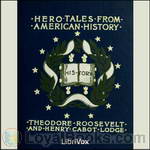 Hero Tales from American History
Hero Tales from American History
Its purpose … is to tell in simple fashion the story of some Americans who showed that they knew how to live and how to die; who proved their truth by their endeavor; and who joined to the stern and manly qualities which are essential to the well-being of a masterful race the virtues of gentleness, of patriotism, and of lofty adherence to an ideal. It is a good thing for all Americans … to remember the men who have given their lives in war and peace to the service of their fellow-countrymen, and to keep in mind the feats of daring and personal prowess done in time past by some of the many champions of the nation in the various crises of her history. | |
By: Henry Cadwallader Adams (1817-1899) | |
|---|---|
 Perils in the Transvaal and Zululand
Perils in the Transvaal and Zululand
A young man travels to South Africa to find his Mother and sister. He wants to be a clergyman and a farmer when he arrives there. This story includes accounts of the Zulu-Boer wars. - Summary by Ingrid Kennedy | |
By: Henry Charles Lahee (1856-1953) | |
|---|---|
 Annals of Music in America A Chronological Record of Significant Musical Events
Annals of Music in America A Chronological Record of Significant Musical Events
| |
By: Henry Charles Lea (1825-1909) | |
|---|---|
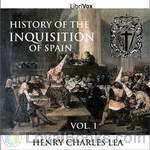 History of the Inquisition of Spain
History of the Inquisition of Spain
The first volume of Lea’s monumental work on the Inquisition of Spain, covering its origin and establishment and its relations with the state. Also included are appendices listing Tribunals, Inquisitors-General, and Spanish coinage. | |